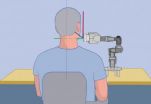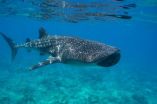(Press-News.org) (NEW YORK – August 11) Blood expression levels of genes targeted by the stress hormones called glucocorticoids could be a physical measure, or biomarker, of risk for developing Post-Traumatic Stress Disorder (PTSD), according to a study conducted in rats by researchers at the Icahn School of Medicine at Mount Sinai and published August 11 in Proceedings of the National Academy of Sciences (PNAS). That also makes the steroid hormones' receptor, the glucocorticoid receptor, a potential target for new drugs.
Post-Traumatic Stress Disorder (PTSD) is triggered by a terrifying event, either witnessed or experienced. Symptoms may include flashbacks, nightmares and severe anxiety, as well as uncontrollable thoughts about the event. Not everyone who experiences trauma develops PTSD, which is why the study aimed to identify biomarkers that could better measure each person's vulnerability to the disorder.
"Our aim was to determine which genes are differentially expressed in relation to PTSD," said lead investigator Rachel Yehuda, PhD, Professor of Psychiatry and Neuroscience and Director of the Traumatic Stress Studies Division at the Icahn School of Medicine at Mount Sinai. "We found that most of the genes and pathways that are different in PTSD-like animals compared to resilient animals are related to the glucocorticoid receptor, which suggests we might have identified a therapeutic target for treatment of PTSD," said Dr. Yehuda, who also heads the Mental Health Patient Care Center and PTSD Research Program at the James J. Peters Veterans Affairs Medical Center in the Bronx.
The research team exposed a group of male and female rats to litter soiled by cat urine, a predatory scent that mimics a life-threatening situation. Most PTSD studies until now have used only male rats. Mount Sinai researchers included female rats in this study since women are more vulnerable than men to developing PTSD. The rats were then categorized based on their behavior one week after exposure to the scent. The authors also examined patterns of gene expression in the blood and in stress-responsive brain regions.
After one week of being exposed to soiled cat litter for 10 minutes, vulnerable rats exhibited higher anxiety and hyperarousal, and showed altered glucocorticoid receptor signaling in all tissues compared with resilient rats. Moreover, some rats were treated with a hormone that activates the glucocorticoid receptor called corticosterone one hour after exposure to the cat urine scent. These rats showed lower levels of anxiety and arousal one week later compared with untreated, trauma-exposed rats.
"PTSD is not just a disorder that affects the brain," said co-investigator Nikolaos Daskalakis, MD, PhD, Associate Research Scientist in the Department of Psychiatry at the Icahn School of Medicine at Mount Sinai. "It involves the entire body, which is why identifying common regulators is key. The glucocorticoid receptor is the one common regulator that consistently stood out."
INFORMATION:
Co-collaborators of the study include Joseph Buxbaum, PhD, Professor of Psychiatry, Neuroscience, Genetics and Genomic Sciences and the director of the Seaver Autism Center at the Icahn School of Medicine at Mount Sinai, Hagit Cohen, PhD, Professor of Faculty of Health Sciences and director of the Anxiety & Stress Research Unit at Ben-Gurion University in Israel and Guiqing Cai, Postdoctoral Fellow in the Department of Genetics and Genomic Sciences at the Icahn School of Medicine at Mount Sinai.
About the Mount Sinai Health System
The Mount Sinai Health System is an integrated health system committed to providing distinguished care, conducting transformative research, and advancing biomedical education. Structured around seven member hospital campuses and a single medical school, the Health System has an extensive ambulatory network and a range of inpatient and outpatient services—from community-based facilities to tertiary and quaternary care.
The System includes approximately 6,600 primary and specialty care physicians, 12 minority-owned free-standing ambulatory surgery centers, over 45 ambulatory practices throughout the five boroughs of New York City, Westchester, and Long Island, as well as 31 affiliated community health centers. Physicians are affiliated with the Icahn School of Medicine at Mount Sinai, which is ranked among the top 20 medical schools both in National Institutes of Health funding and by U.S. News & World Report.
For more information, visit http://www.mountsinai.org, or find Mount Sinai on Facebook, Twitter and YouTube.
Biomarker could reveal why some develop post-traumatic stress disorder
2014-08-12
ELSE PRESS RELEASES FROM THIS DATE:
Robotic-assisted imaging: from trans-Atlantic evaluation to help in daily practice
2014-08-12
While in Germany, Partho P. Sengupta, MD, of Icahn School of Medicine at Mount Sinai used a computer to perform a robot-assisted trans-Atlantic ultrasound examination on a person in Boston. In another study Kurt Boman, MD, of Umeå University in Sweden in collaboration with Mount Sinai, showed how a cardiologist's video e-consultation, coupled with a remote robot-assisted echocardiogram test, dramatically reduces the waiting time for a diagnosis faced by heart failure patients who live in a rural communities far from the hospital from nearly four months to less than one ...
The Maldives and the whale shark: The world's biggest fish adds value to paradise
2014-08-12
They are the largest fish in the world but the impact of this majestic and charismatic animal on the economy of the island nation of the Maldives was largely unknown. A new study by scientists of the Maldives Whale Shark Research Programme (MWSRP) reveals that a small group of whale sharks in a single Maldivian Atoll accounts for nearly 3% of the global shark ecotourism and nearly half that of the Maldives'.
"The Republic of Maldives hosts one of few known year round aggregation sites for whale sharks", said James Hancock co-author and a director of MWSRP. "We have seen ...
Is empathy in humans and apes actually different?
2014-08-12
Whether or not humans are the only empathic beings is still under debate. In a new study, researchers directly compared the 'yawn contagion' effect between humans and bonobos (our closest evolutionary cousins). By doing so they were able to directly compare the empathic abilities of ourselves with another species, and found that a close relationship between individuals is more important to their empathic response than the fact that individuals might be from the same species.
The ability to experience others' emotions is hard to quantify in any species, and, as a result, ...
Sniffing out billions in US currency smuggled across the border to Mexico
2014-08-12
SAN FRANCISCO, Aug. 12, 2014 — Criminals are smuggling an estimated $30 billion in U.S. currency into Mexico each year from the United States, but help could be on the way for border guards, researchers will report here today. The answer to the problem: a portable device that identifies specific vapors given off by U.S. paper money.
They will present the new research at the 248th National Meeting & Exposition of the American Chemical Society (ACS), the world's largest scientific society. The meeting features nearly 12,000 reports on new advances in science and other ...
Could hemp nanosheets topple graphene for making the ideal supercapacitor?
2014-08-12
SAN FRANCISCO, Aug. 12, 2014 — As hemp makes a comeback in the U.S. after a decades-long ban on its cultivation, scientists are reporting that fibers from the plant can pack as much energy and power as graphene, long-touted as the model material for supercapacitors. They're presenting their
research, which a Canadian start-up company is working on scaling up, at the 248th National Meeting & Exposition of the American Chemical Society (ACS), the world's largest scientific society.
The meeting features nearly 12,000 presentations on a wide range of science topics and ...
Stinky gases emanating from landfills could transform into clean energy
2014-08-12
SAN FRANCISCO — A new technique that transforms stinky, air-polluting landfill gas could produce the sweet smell of success as it leads to development of a fuel cell generating clean electricity for homes, offices and hospitals, researchers say. The advance would convert methane gas into hydrogen, an efficient, clean form of energy.
The researcher's report is part of the 248th National Meeting of the American Chemical Society (ACS), the world's largest scientific society.
The meeting, attended by thousands of scientists, features nearly 12,000 reports on new advances ...
Climate change, predators, and the trickle down effects on ecosystems
2014-08-12
Predators play important roles in maintaining diverse and stable ecosystems. Climate change can push species to move in order to stay in their climatic comfort zones, potentially altering where species live and how they interact, which could fundamentally transform current ecosystems.
A symposium focusing on climate's effects on predators—causing cascading effects on whole ecosystems -- will take place on Tuesday, August 12th during the Ecological Society of America's 99th Annual Meeting, held this year in Sacramento, California.
There will be "winners" and "losers" ...
Blacks, women face greater burden from CVD risk factors
2014-08-11
The impact of major cardiovascular risk factors combined is greater in women than men and in blacks than whites. While the gender gap may be narrowing, differences by race may be increasing, according to new research in the American Heart Association journal Circulation.
"We've been targeting traditional risk factors in public health campaigns for many years," said Susan Cheng, M.D., M.P.H., study lead author and Assistant Professor of Medicine at Brigham and Women's Hospital in Boston, Mass. "We wanted to take a look at how well we've been doing over time at keeping ...
Bone drugs may not protect osteoporotic women from breast cancer
2014-08-11
Osteoporosis drugs known as bisphosphonates may not protect women from breast cancer as had been thought, according to a new study led by researchers at UC San Francisco (UCSF).
The drugs' protective effect was widely assumed after several observational studies showed that women who took them were less likely to get breast cancer.
But when researchers assessed the effect of two of the most widely used osteoporosis drugs – sold under the brand names, Fosamax and Reclast – in two large randomized clinical trials, neither drug protected women with osteoporosis from getting ...
Novel study maps infant brain growth in first 3 months of life using MRI technology
2014-08-11
A recent study conducted by researchers at the University of California, San Diego School of Medicine and the University of Hawaii demonstrates a new approach to measuring early brain development of infants, resulting in more accurate whole brain growth charts and providing the first estimates for growth trajectories of subcortical areas during the first three months after birth. Assessing the size, asymmetry and rate of growth of different brain regions could be key in detecting and treating the earliest signs of neurodevelopmental disorders, such as autism or perinatal ...



